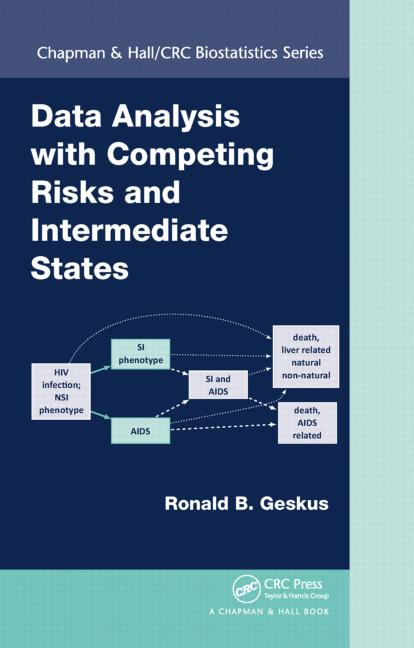Table of contents
1) Basic concepts. The role of time. Data structure. Basic quantities: rate and risk. (Non)-informative information schemes. Summary of basic techniques from survival analysis.
2) Competing Risks; Nonparametric Estimation. Theoretical relations. The multi-state approach and the subdistribution approach. The competing risks equivalents of the Kaplan-Meier and log-rank test.
3) Intermediate Events; Nonparametric Estimation. Basic structure and terminology in multi-state models. The Aalen-Johansen estimator.
4) Regression; Cause-Specific/Transition Hazard. Correspondence with standard Cox model. Combined analysis: techniques and added value.
5) Regression; Translation to Cumulative Scale. Three ways to quantify the risk based on covariables.
6) Epilogue. Which type of quantity to choose? Etiology and prediction.
Additional materials
Files that directly relate to the book.
Presentations
Competing risks, interpretation and ignorance: presentation given at the dept. of Clinical Epidemiology, Biostatistics and Bioinformatics of the Academic Medical Center, June 2015.
Competing risks, when and how to incorporate them in the analysis". Short course at workshop Statistical modelling of multivariate longitudinal and survival data in medical research, University of Cape Town, January 29-31, 2019
Courses
- Vienna, 2014
- Leuven, 2016
- Karolinska Institute, Stockholm (February 5-7, 2019)
